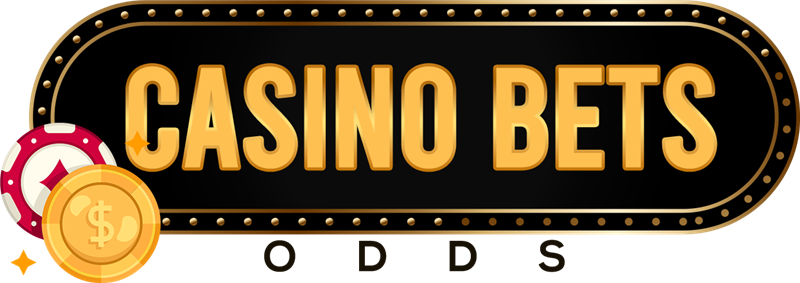Playing poker online offers a surprising number of advantages that go beyond just the game itself. While many focus on the thrill of the competition or the potential to win, the benefits of playing poker online extend into skill development, mental training, and even social connection. This exploration will shed light on these often-overlooked aspects, showing how the virtual felt can be a surprisingly productive place.
Key Takeaways
- Online poker provides unmatched convenience, allowing you to play anytime, anywhere, fitting the game into your schedule.
- You gain access to a vast array of games and formats, catering to every preference and skill level.
- Lower stakes and accessible buy-ins make online poker a great option for players of all financial backgrounds.
- The game sharpens cognitive abilities, improving strategic thinking, focus, and decision-making skills.
- Online poker offers a unique training ground for emotional control, discipline, and resilience through managing wins and losses.
Why Play Poker Online?
Playing poker online offers a unique set of advantages that go far beyond simply winning or losing hands. It’s a space where you can develop valuable life skills, connect with others, and even improve your cognitive abilities. Many people think of online poker as just another game, but it’s a platform for personal growth and strategic thinking. The accessibility and variety of online poker make it a fantastic tool for self-improvement.
Unmatched Convenience: Play Anytime, Anywhere
One of the most obvious benefits is the sheer convenience. You can play poker from the comfort of your home, during a lunch break, or even while traveling. This flexibility means you can fit the game into your schedule, rather than rearranging your life around it. Whether you have a few minutes or a few hours, the online tables are always open.
Endless Game Variety & Format Flexibility
Online poker sites offer a vast selection of games and formats. From Texas Hold’em to Omaha, and from cash games to tournaments, there’s something for everyone. You can easily switch between different stakes and game types to keep things fresh and challenging. This variety helps you discover new strategies and adapt your play style.
Lower Stakes and Financial Accessibility for All Players
Online poker is often more affordable than playing in a live casino. You can find games with very low buy-ins, making it accessible to players of all financial backgrounds. This allows you to practice and improve your skills without risking a significant amount of money. It’s a great way to learn the game and build your bankroll gradually.
Boosted Opportunities: Multi‑Tabling & Faster Hands per Hour
Online platforms allow you to play multiple tables simultaneously, significantly increasing the number of hands you can play in a given time. This exposure to more situations helps you learn faster and develop your decision-making skills more quickly. It’s like getting weeks of live play experience in just a few days.
Bonuses, Rewards, and Lower Rake: Get More Value
Online poker sites frequently offer bonuses, loyalty programs, and rakeback deals. These promotions can add significant value to your play, effectively lowering the cost of playing and increasing your potential winnings. It’s a way for sites to reward regular players and keep the games exciting. You can often find great welcome offers that give you a boost when you start.
Perfect for Beginners: Tutorials, Practice Play & Anonymous Modes
New players will find online poker incredibly welcoming. Many sites offer tutorials, free-play modes, and even anonymous tables where you can practice without the pressure of being identified. This allows you to learn the rules, experiment with strategies, and build confidence before playing for real money.
Sharpening the Mind: Cognitive Skills, Strategic Thinking, and Focus
Poker demands a lot of mental effort. You need to analyze probabilities, track opponents’ tendencies, and make complex decisions under pressure. Regularly playing poker can improve your critical thinking, memory, and ability to focus. It’s a mental workout that can benefit you in many areas of life.
Emotional Control, Discipline & Resilience Training
Dealing with wins and losses is a core part of poker. Learning to manage your emotions, stay disciplined even when things aren’t going your way, and bounce back from setbacks builds resilience. This emotional regulation is a skill that translates directly to handling challenges in everyday life.
Social Connection & Global Networking from the Comfort of Home
While playing online might seem solitary, it offers social interaction through chat features and forums. You can connect with players from around the world, share experiences, and even form friendships. It’s a way to be part of a community without leaving your house.
Life Lessons Learned at the Virtual Table: Confidence, Decision‑Making & Real‑World Benefits
Ultimately, online poker teaches valuable life lessons. You learn to make calculated decisions, manage risk, and adapt to changing circumstances. The confidence gained from improving your skills and managing your bankroll can spill over into other aspects of your life, helping you approach challenges with a more strategic and confident mindset.
Unmatched Convenience

One of the biggest draws to playing poker online is just how easy it is to fit into your life. You don’t need to plan a night out or travel to a specific location. You can play a few hands during your lunch break or settle in for a longer session after the kids are in bed. The digital world has made the game accessible to everyone, regardless of their schedule or where they happen to be.
Play on Your Terms
Think about it: no dress codes, no travel time, and no waiting for a seat at a physical table. Online poker sites are open 24/7. This means you can play whenever the mood strikes, whether that’s early morning, late at night, or any time in between. You can even try out games for free to get a feel for them before committing any money, which is a nice way to learn the ropes without pressure. Play online casino games for free.
Device Flexibility
Most online poker platforms are designed to work on a variety of devices. You can play on your desktop computer at home, on a laptop while traveling, or even on your smartphone or tablet when you’re on the go. This flexibility means your poker game is always just a few clicks or taps away.
Quick Sessions or Marathons
Whether you have five minutes or five hours, online poker can accommodate. You can jump into a quick Sit & Go tournament that lasts less than an hour, or you can join a cash game and play for as long as you like. The pace of the game is often faster online too, with more hands played per hour compared to live games, giving you more action in less time.
The ability to play whenever and wherever you want removes many of the barriers that traditional poker has. It truly democratizes the game, making it available to a much wider audience than ever before.
Endless Game Variety & Format Flexibility

One of the biggest draws of playing poker online is the sheer amount of choice you have. Unlike a physical card room, which might only offer a few popular games, online platforms host a massive selection. You can find everything from the classic Texas Hold’em to less common variants like Omaha, Seven Card Stud, and even mixed games. This variety means you’re never stuck playing the same thing, allowing you to explore different strategies and keep your interest high.
Beyond just the types of poker, online sites also offer incredible flexibility in game formats. You can choose to play cash games, where you can join and leave tables as you please, or jump into tournaments with various buy-in levels and structures. Sit & Gos are perfect for those who want a quick tournament experience without a fixed start time.
Cash Games
Tournaments
Sit & Gos
Pot Limit Omaha
No-Limit Hold’em
Seven Card Stud
The ability to switch between these formats and games with just a few clicks is a significant advantage. It allows players to adapt their play style to their mood or available time. For instance, if you only have an hour, a Sit & Go might be ideal. If you want a more relaxed experience and the freedom to play at your own pace, cash games are the way to go. Exploring different poker variants can also be a great way to improve your overall game, much like how learning different casino table games can broaden your understanding of strategy.
The sheer volume of available games and formats means you can always find a game that suits your skill level, bankroll, and available time. This adaptability is key to long-term enjoyment and improvement in poker.
Lower Stakes and Financial Accessibility for All Players
One of the most significant advantages of playing poker online is the sheer accessibility it offers, particularly concerning stakes and financial commitment. Unlike live casinos, which often have higher minimum buy-ins, online platforms cater to a much broader range of budgets. You can find games starting with incredibly low stakes, sometimes just a few cents, making it possible for anyone to sit down and play without needing a large bankroll. This low barrier to entry is a big reason why the game has become so popular. It means you don’t have to be wealthy to enjoy the strategy and excitement of poker. The ability to play at these lower levels also provides a fantastic opportunity for new players to learn the ropes and develop their skills without the pressure of risking substantial amounts of money. It’s a great way to get started and build confidence before moving up to higher stakes if you choose. The online poker world truly opens the doors for everyone to participate, regardless of their current financial situation. This approach makes the game more inclusive and allows a wider audience to experience the thrill of the game. It’s a key factor in the growth of online poker, making it a pastime accessible to many. You can find plenty of resources to help you get started, like those found on poker strategy articles.
Micro-Stakes Games
These are the entry-level games where the blinds and buy-ins are extremely small. For example, you might find games with blinds of $0.01/$0.02 or $0.02/$0.05. The buy-in for a typical micro-stakes cash game might be as low as $1 or $2. These games are perfect for learning the fundamentals and getting a feel for online play.
Play Money Tables
Most online poker sites offer play money tables where you can play with virtual currency. This is completely free and offers zero financial risk. It’s an ideal environment for absolute beginners to understand the rules, practice different strategies, and get comfortable with the software before they even think about depositing real money.
Freeroll Tournaments
Freerolls are tournaments that you can enter for free, yet they still offer real money prizes. These are often sponsored by the poker sites themselves as a way to attract new players and give existing ones a chance to win something without any risk. They can be a great way to build a poker bankroll from scratch.
The ability to play at very low stakes means that the financial risk associated with learning and playing poker is significantly reduced. This allows for a more relaxed and enjoyable learning curve, where mistakes are seen as learning opportunities rather than costly errors.
Boosted Opportunities
Online poker offers a unique advantage for players looking to maximize their time and learning: the ability to play multiple tables simultaneously. This practice, known as multi-tabling, allows you to engage with more hands and see a greater volume of play in a single session. By managing several games at once, you can significantly increase the number of hands you play per hour, accelerating your skill development and potential winnings.
The Mechanics of Multi-Tabling
Multi-tabling isn’t just about opening more windows; it requires a strategic approach to maintain focus and make sound decisions across all active tables. It involves:
- Table Selection: Choosing games that are less demanding or where you have a strong read on the players.
- Layout Management: Arranging your tables efficiently on your screen so you can easily track the action at each one.
- Pacing: Developing a rhythm that allows you to process information and act without feeling rushed.
Hands Per Hour Comparison
Consider the difference in volume when playing one table versus multiple. While a single table might yield 50-70 hands per hour, a player adept at multi-tabling can easily double or triple that amount. For instance, playing four tables could potentially expose you to 200-280 hands per hour, offering a much broader dataset for analysis and improvement.
Benefits Beyond Volume
Beyond simply playing more hands, multi-tabling sharpens your ability to make quick decisions, recognize patterns, and manage your attention effectively. It’s a practical way to gain experience rapidly, much like how professionals might study different scenarios to improve their game. This increased exposure helps you adapt to various playing styles and situations more readily, making you a more versatile player. It’s a skill that can be honed over time, much like learning to find the best poker rooms in Las Vegas.
The efficiency gained from multi-tabling translates directly into faster learning. You encounter more diverse scenarios, allowing you to test strategies and refine your approach at an accelerated pace. This volume is key to understanding game dynamics and player tendencies more deeply.
Bonuses, Rewards, and Lower Rake
Online poker sites often sweeten the deal with various bonuses and reward programs that you just don’t find in live games. These extras can add up, giving you more bang for your buck. Think of it as getting a little something back just for playing.
Welcome Bonuses
When you first sign up, most sites offer a welcome bonus. This is usually a percentage of your initial deposit, essentially giving you extra funds to play with. For example, a 100% match bonus on a $100 deposit means you get an extra $100.
Loyalty Programs and VIP Tiers
Beyond the initial welcome, many platforms have loyalty programs. You earn points for playing, which you can then redeem for cash, tournament tickets, or other prizes. The more you play, the higher you climb in VIP tiers, often unlocking better rewards and rakeback. Rakeback is a system where you get a portion of the rake you’ve paid back, which is a direct way to reduce your overall rakeback costs.
Reload Bonuses and Promotions
Keep an eye out for reload bonuses, which are similar to welcome bonuses but offered to existing players when they make additional deposits. Sites also run regular promotions, like leaderboards or special tournaments with added prize money, giving you more chances to win.
Reduced Rake
Compared to live games, online poker often has a lower rake, which is the fee the poker room takes from each pot. This small difference can significantly impact your long-term profitability, as less money is taken out of play.
The combination of bonuses, loyalty rewards, and a lower rake structure means that your money can go further when playing poker online. It’s a tangible benefit that directly impacts your bottom line.
These incentives are designed to keep players engaged and are a significant advantage for anyone looking to maximize their playing time and potential winnings.
Perfect for Beginners
Starting in online poker can feel a bit overwhelming, but thankfully, many platforms are designed with newcomers in mind. You don’t need to jump straight into real money games to learn the ropes. Many sites offer free-play options, which are fantastic for getting a feel for the game without any financial risk. Think of it like a digital sandbox where you can experiment with different strategies and learn the rules at your own pace.
Accessible Learning Resources
Online poker sites often provide a wealth of learning materials. These can include:
- Tutorials: Step-by-step guides explaining everything from basic hand rankings to more complex betting structures.
- Strategy Articles: Tips and advice on how to approach different game situations.
- Video Content: Demonstrations of gameplay and strategic thinking.
Practice Makes Progress
One of the biggest advantages for beginners is the availability of practice play. This allows you to play with virtual chips, so you can get comfortable with the software, understand the flow of a game, and test out different approaches without worrying about losing money. It’s a low-pressure way to build confidence. For instance, platforms like Replay Poker offer a completely free environment to hone your skills.
Anonymous Play Options
Some sites also offer anonymous tables or play money games. This can be helpful because it removes the pressure of playing against experienced players who might recognize your screen name or playing style. It’s a way to focus purely on your game and learn without feeling scrutinized. This anonymity can significantly reduce the intimidation factor for new players.
Learning poker online is a journey, and starting with practice modes and educational resources is a smart way to build a solid foundation. It’s about gradual improvement, not instant mastery. Taking advantage of these beginner-friendly features means you can develop your skills and understanding in a supportive environment before you decide to play with real money.
Sharpening the Mind
Playing poker online isn’t just about the cards you’re dealt; it’s a fantastic workout for your brain. You’re constantly processing information, trying to figure out what your opponents might have based on their actions, and planning your moves several steps ahead. This kind of thinking sharpens your analytical abilities and forces you to develop a more strategic mindset. It’s like a mental chess match but with more variables and a lot less predictability.
Developing Strategic Thinking
Poker demands that you think critically about probabilities, player tendencies, and table dynamics. You learn to assess risk versus reward in real-time, making decisions that have consequences. This constant evaluation helps build a more robust strategic thinking process that can spill over into other areas of your life. You start to see situations not just as they are, but as they could be, based on different actions and reactions. It’s about anticipating outcomes and adjusting your approach accordingly.
Improving Focus and Concentration
To succeed at the virtual felt, you need to maintain a high level of focus. You’re watching betting patterns, card distributions, and player tells, all while managing your own hand. This sustained attention is a skill that can be improved with practice. Unlike passive entertainment, poker requires active engagement, keeping your mind sharp and preventing it from wandering. This ability to concentrate for extended periods is a transferable skill, useful in work, study, or any task requiring deep thought. It’s a good way to practice staying present, much like focusing on your solo blackjack practice.
Enhancing Decision-Making Skills
Every hand presents a series of decisions: whether to bet, call, raise, or fold. Each choice has a potential impact on the outcome. You learn to make these decisions under pressure, often with incomplete information. This process trains you to weigh options, consider potential consequences, and commit to a course of action. Over time, this can lead to quicker and more confident decision-making in everyday life, as you become more accustomed to analyzing situations and acting decisively.
Emotional Control, Discipline & Resilience Training
Playing poker online is a fantastic way to build mental toughness. It’s not just about the cards you’re dealt; it’s about how you handle the ups and downs. When you’re in a tough spot, maybe after a bad beat or a series of losses, you have to keep your cool. This teaches you to manage your emotions, rather than letting them control your decisions. It’s easy to get frustrated, but experienced players learn to take a breath, reset, and focus on the next hand. This kind of self-control is a skill that translates directly into real life, helping you deal with stress and setbacks more effectively.
Think about it: you’re playing a hand, you’ve got a good chance of winning, and then suddenly, an opponent gets lucky and takes the pot. It stings, right? But you can’t let that anger dictate your next move. You need discipline to stick to your strategy and not go on tilt, making rash decisions out of spite. Online poker provides a consistent training ground for this. You’re constantly faced with situations that test your patience and your ability to think clearly under pressure. Over time, this builds resilience, making you better equipped to handle disappointment and bounce back from adversity.
Here’s a look at how poker helps build these traits:
- Emotional Regulation: Learning to accept losses without getting overly upset is key. You train yourself to separate the outcome of a single hand from your overall game plan.
- Discipline: Sticking to your pre-game strategy, even when things aren’t going your way, is vital. This means not chasing losses or playing hands you know you shouldn’t.
- Resilience: Bouncing back after a bad beat or a losing session is a core part of the game. You learn that one setback doesn’t define your ability to succeed.
The constant need to adapt and make calculated decisions, even when faced with uncertainty or unfavorable outcomes, sharpens your mental fortitude. It’s a continuous process of learning from mistakes and refining your approach, which is a powerful form of personal development.
This process of playing and learning can help you develop a stronger mindset, which is useful in many areas of life, not just at thepoker table.
Social Connection & Global Networking from the Comfort of Home
Playing poker online might seem like a solitary activity, but it opens up a surprising number of avenues for social interaction and even professional networking. You’re not just sitting alone in a room; you’re joining a global community of players. Think of it as a digital poker club where you can meet people from all walks of life, sharing a common interest.
Connecting with Like-Minded Individuals
Online poker platforms often have chat features, forums, and even integrated social media aspects. This allows you to strike up conversations with other players, discuss hands, share strategies, or just chat about life. It’s a great way to combat the isolation that can sometimes come with online gaming. You might find yourself discussing a tricky bluffing situation with someone from across the globe, learning their perspective and perhaps even making a new friend.
Building a Network Beyond the Game
Many players you’ll encounter come from diverse professional backgrounds. By engaging in conversations, you can learn about different industries, share insights, and potentially even discover business opportunities. It’s not uncommon for friendships and professional connections to form organically at the virtual tables. These interactions can lead to collaborations or simply broaden your understanding of the world. Access to shared global player pools means you’re always likely to find a game and a diverse group of people to interact with oninternational poker sites.
Shared Experiences and Support
Poker, whether online or live, can be a rollercoaster of emotions. Sharing these experiences with others who understand the highs of a big win and the lows of a bad beat can be incredibly validating. Online communities provide a space to celebrate successes and commiserate over losses, offering a sense of camaraderie. You can learn from others’ experiences, get advice on managing tilt, and find encouragement when you need it most.
The shared journey of learning and playing poker online can forge genuine connections, turning a solo pursuit into a shared social experience. It’s about more than just the cards; it’s about the people you meet along the way.
Opportunities for Collaboration and Learning
- Strategy Discussions: Engage in detailed discussions about hand analysis and strategic approaches.
- Mentorship: Experienced players often share advice with newcomers, creating a learning environment.
- Friendly Competition: Participate in private games or tournaments with people you’ve connected with online.
These interactions aren’t just about improving your poker game; they’re about building relationships and expanding your social circle from the comfort of your own home.
Life Lessons Learned at the Virtual Table

Playing poker online, while seemingly just a game, can teach you a lot about yourself and how to handle real-world situations. It’s not just about the cards you’re dealt; it’s about how you play them, and that translates into everyday life.
Building Confidence Through Calculated Risks
Every decision you make at the virtual table, from a small bet to a big raise, is a calculated risk. When those decisions pay off, it builds a sense of accomplishment and confidence. You start to trust your judgment more, not just in poker, but in other areas too. It’s like learning to ride a bike; you might wobble at first, but with practice, you get steadier and more assured. This growing confidence can spill over into your work, your social life, and how you approach new challenges.
Sharpening Decision-Making Skills Under Pressure
Poker forces you to make quick decisions with incomplete information. You have to analyze the situation, consider the odds, and then act, all while under pressure. This constant practice sharpens your ability to make sound decisions even when things are uncertain. The ability to weigh options and commit to a course of action, even with a degree of risk, is a skill that benefits every aspect of life. Think about it: choosing a career path, making a significant purchase, or even deciding how to handle a difficult conversation all require similar decision-making processes. The discipline learned at the poker table can make these real-life choices feel more manageable.
Developing Emotional Control and Resilience
Let’s be honest, poker can be a rollercoaster of emotions. You’ll have amazing wins, but you’ll also face tough losses. Learning to manage those swings – to not get too high after a win or too low after a loss – is a huge life lesson. It teaches you resilience, the ability to bounce back from setbacks. This emotional control is incredibly important for dealing with life’s inevitable ups and downs. It’s about focusing on your process and not letting external factors, like a bad beat, derail your entire outlook. Embracing a mindset similar to Stoic philosophy, where you focus on what you can control—your decisions and reactions—rather than outcomes, can be incredibly helpful.Stoic philosophy offers valuable lessons for poker players.
Learning to Adapt and Strategize
Every poker game is different, and every opponent has their style. You have to constantly adapt your strategy to what’s happening at the table. This teaches you flexibility and strategic thinking, skills that are vital in a world that’s always changing. You learn to observe, analyze, and adjust your approach, which is a powerful tool for navigating complex situations in the real world. It’s about being able to think on your feet and come up with new plans when the old ones aren’t working.
Frequently Asked Questions
How is playing poker online convenient?
Playing poker online is super easy and can be done from almost anywhere, like your home or even on a bus. You don’t need to travel to a casino. You can play whenever you want, day or night, which is really handy.
What kind of game variety can I expect online?
Online poker sites have tons of different games and ways to play. You can find everything from fast-paced games to slower ones, and you can choose what suits you best. It’s like having a huge menu of games to pick from.
Can I play poker online if I don’t have much money?
Online poker often has lower buy-ins, meaning you can start playing with less money. This makes it easier for everyone to join in and try their luck without spending a lot.
Can I play multiple poker games at once online?
Yes, many online poker players play on multiple screens at once. This means they can play more hands in an hour, which can help them learn faster and potentially win more.
What kind of bonuses and rewards can I get playing poker online?
Online poker sites often give players special deals like bonuses when they sign up or play a lot. They also usually charge less for playing compared to live games, so you get more value for your money.
Is online poker good for beginners?
Online poker is great for new players because many sites offer guides, practice games with fake money, and even ways to play without showing your name. This helps you learn the game safely.
How does playing poker online help my brain?
Playing poker online can make your brain sharper. It helps you think ahead, make smart choices, and focus better, which are skills useful in many parts of life.
Can playing poker online teach me about controlling my emotions?
Poker teaches you to stay calm when things get tough and to stick with your plan. Learning to manage your feelings and stay disciplined at the poker table can help you in real-life situations too.
Daniel Chase is a seasoned casino analyst and iGaming writer with over 10 years of experience in the online gambling industry. He specializes in game strategy, casino odds, and player-focused reviews. Daniel is passionate about helping players make smarter decisions through transparency, real data, and honest insight.










